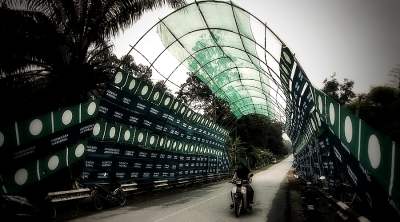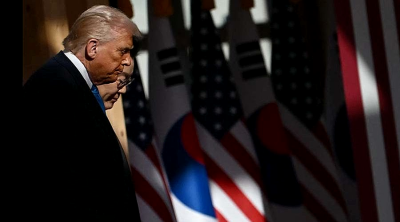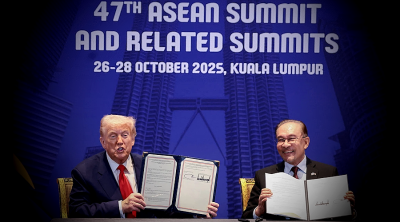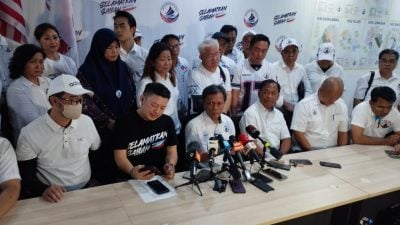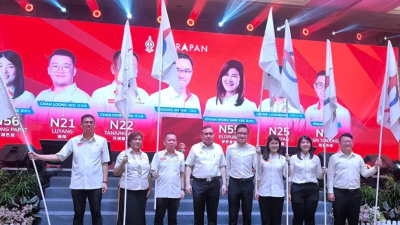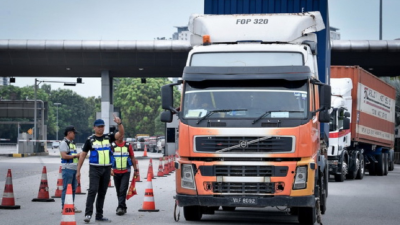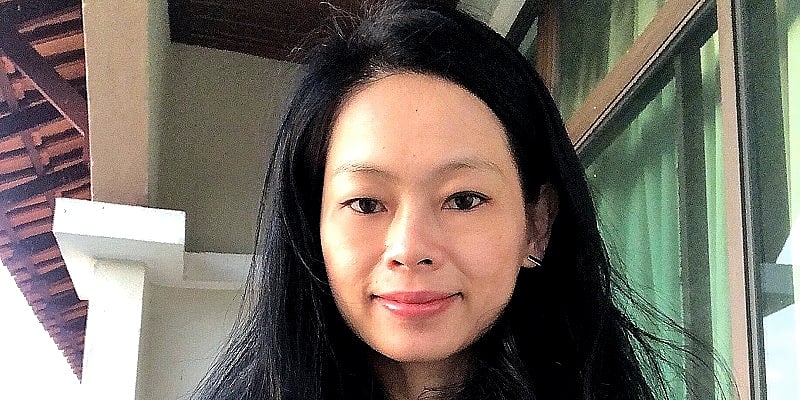
It has been a month since Donald Trump’s second inauguration, and the world is already feeling the effects.
In Washington, chaos reigns as Trump shakes up alliances, cuts funding for international programs, and doubles down on his “America First” rhetoric.
Across Southeast Asia, authoritarian leaders are watching closely, sensing an opportunity to tighten their grip with little fear of US interference.
For Malaysia, this shift comes at a critical moment. Prime Minister Anwar Ibrahim, once the face of democratic struggle, is now at the helm of a government navigating political complexity.
The question remains – will Malaysia stand firm on its democratic ideals, or will it, like much of ASEAN, drift toward political pragmatism where stability trumps freedoms?
Trump’s return: A blow to democracy in ASEAN?
Trump has never been a champion of democracy. His first term showed that he preferred dealing with strongmen rather than pressing for political reforms.
From his warm ties with Duterte despite the Philippine drug war, to his silence on Thailand’s military government, his approach was clear: as long as a leader served US interests, their governance style didn’t matter.
Now that he’s back, ASEAN leaders who favour centralised control are breathing a sigh of relief. Without US pressure on human rights and good governance, they are free to consolidate power.
The Philippines under Marcos Jr., Cambodia under Hun Manet, and Myanmar’s military junta now operate in a world where democracy is no longer a US foreign policy priority.
For Malaysia, this means the global democratic tide is receding, just as the country grapples with its own struggles over reform and governance.
Anwar’s administration, which once inspired hope for democratic renewal, is increasingly facing scepticism at home.
Anwar’s reality check: A struggle for reform
Anwar Ibrahim’s rise to power was historic – a former opposition leader who spent years in prison finally becoming prime minister.
His government promised democratic reforms, institutional transparency, and an end to decades of political dysfunction. Yet, translating promises into reality has proven far more complex.
Reform has been slow, with critics accusing the government of backtracking on press freedom, judicial independence, and political accountability.
Corruption remains an issue, and despite Anwar’s calls for unity, political tensions persist.
Crackdowns on activists have fuelled concerns that his administration is behaving more like its predecessors than the reformist government it once aspired to be.
Many Malaysians now ask: Has democracy truly delivered? Or has it merely become another tool used by politicians to gain power?
Rising scepticism towards democracy
Malaysia is not alone in its doubts. Across Southeast Asia, people are increasingly questioning whether democracy actually works. Elections have not always led to better governance.
In Thailand, democratic processes have only reinforced military-backed rule. In the Philippines, democracy led to Duterte’s violent regime. Even in Malaysia, years of political instability have made voters wonder if democratic transitions improve their daily lives.
Trump’s return only deepens this scepticism. If the world’s most powerful democracy can elect a leader who undermines its own institutions, what does that say about democracy’s ability to deliver good governance?
For authoritarian-leaning ASEAN leaders, Trump’s comeback is proof that democracy is flawed – that strong, decisive leadership is preferable to messy, drawn-out political debates.
For Malaysians, this presents a dilemma. The country has fought hard for democracy, but political fatigue is setting in. Many now wonder if stability, even at the cost of some freedoms, is a more practical choice.
Where does Malaysia go from here?
Anwar’s government stands at a crossroads. He can either push ahead with democratic reforms – strengthening institutions, ensuring greater transparency, and upholding the rule of law – even as the global tide shifts toward authoritarian pragmatism.
This path, however, is not without risks. Reform is slow, often disruptive, and threatens entrenched political elites, inviting fierce opposition.
Alternatively, he could take the safer, more pragmatic route – prioritising economic stability, political consolidation, and short-term political survival over deeper democratic transformation. This means focusing on economic growth, managing racial and religious sensitivities, and maintaining a delicate political balance, even if it requires sacrificing some democratic ideals.
In a region where strongman rule is increasingly normalised, this path may seem tempting. But history has shown that sacrificing democratic institutions for short-term stability often comes at a long-term cost.
So far, Anwar’s approach has been mixed. His rhetoric remains filled with the language of democracy, reform, and unity, promising a government that upholds justice and accountability.
Yet, his administration has made compromises that suggest a willingness to adjust reformist ambitions in favour of political stability.
Selective enforcement of laws, and alliances with political rivals have raised concerns about whether his government is truly committed to systemic change or merely adapting to the realities of power.
This balancing act reflects the deeper challenge of governing in Malaysia’s complex political landscape.
On one hand, the public expectation remains high – Malaysians who voted for reform want tangible improvements in governance, judicial independence, and press freedom. On the other, Anwar’s unity government includes allies with vastly different interests, making bold reform initiatives politically risky.
If he pushes too hard, he risks losing support from key factions. If he does too little, he risks losing credibility with reform-minded Malaysians.
Malaysia’s role in ASEAN: A beacon or a follower
Trump’s return signals a period where democracy will not be a priority on the global stage.
Under his leadership, the US is unlikely to pressure ASEAN governments on human rights and governance issues.
Meanwhile, China’s influence continues to grow, offering an alternative model – one that prioritises economic partnerships without democratic conditions.
ASEAN itself, with its long-standing reluctance to intervene in domestic political matters, provides little incentive for its member states to push for democratic accountability.
In this environment, Malaysia’s role becomes even more critical. If Anwar’s government upholds democratic principles despite global trends, it could reinforce Malaysia’s position as a regional leader in governance and reform. But if it drifts toward the authoritarian norm – justifying restrictions in the name of stability – then Malaysia may lose its standing as a democratic model in ASEAN.
A test for Malaysia and ASEAN
The question remains: Is democracy still worth fighting for?
Political fatigue is real. After years of instability, leadership changes, and unmet promises, many Malaysians are becoming disillusioned with democratic politics. Some may even wonder if a more centralised, authoritarian-leaning system – one that promises stability and efficiency – is the better option.
Yet, history has shown that the erosion of democracy does not happen overnight. It is a gradual process, one that begins with small compromises – justified in the name of pragmatism – until democratic institutions are hollowed out.
If Malaysia is to resist this trajectory, it will require not just government commitment, but public vigilance and participation.
The road ahead for Malaysia is uncertain. The world is changing, and international support for democracy is fading.
Whether Malaysia continues on the path of reform or shifts toward political convenience will depend on the choices made today.
The coming years will test Anwar’s leadership and the resilience of Malaysia’s democratic institutions.
The real question is not just whether Anwar will choose reform or consolidation – but whether Malaysians themselves will demand a government that upholds the principles they once fought for.
(Khoo Ying Hooi, PhD, is an Associate Professor of International Relations and Human Rights at Universiti Malaya. Her work spans human rights research, diplomacy, and policy engagement across ASEAN and Timor-Leste, along with active contributions in editorial and advisory capacities.)
ADVERTISEMENT
ADVERTISEMENT








